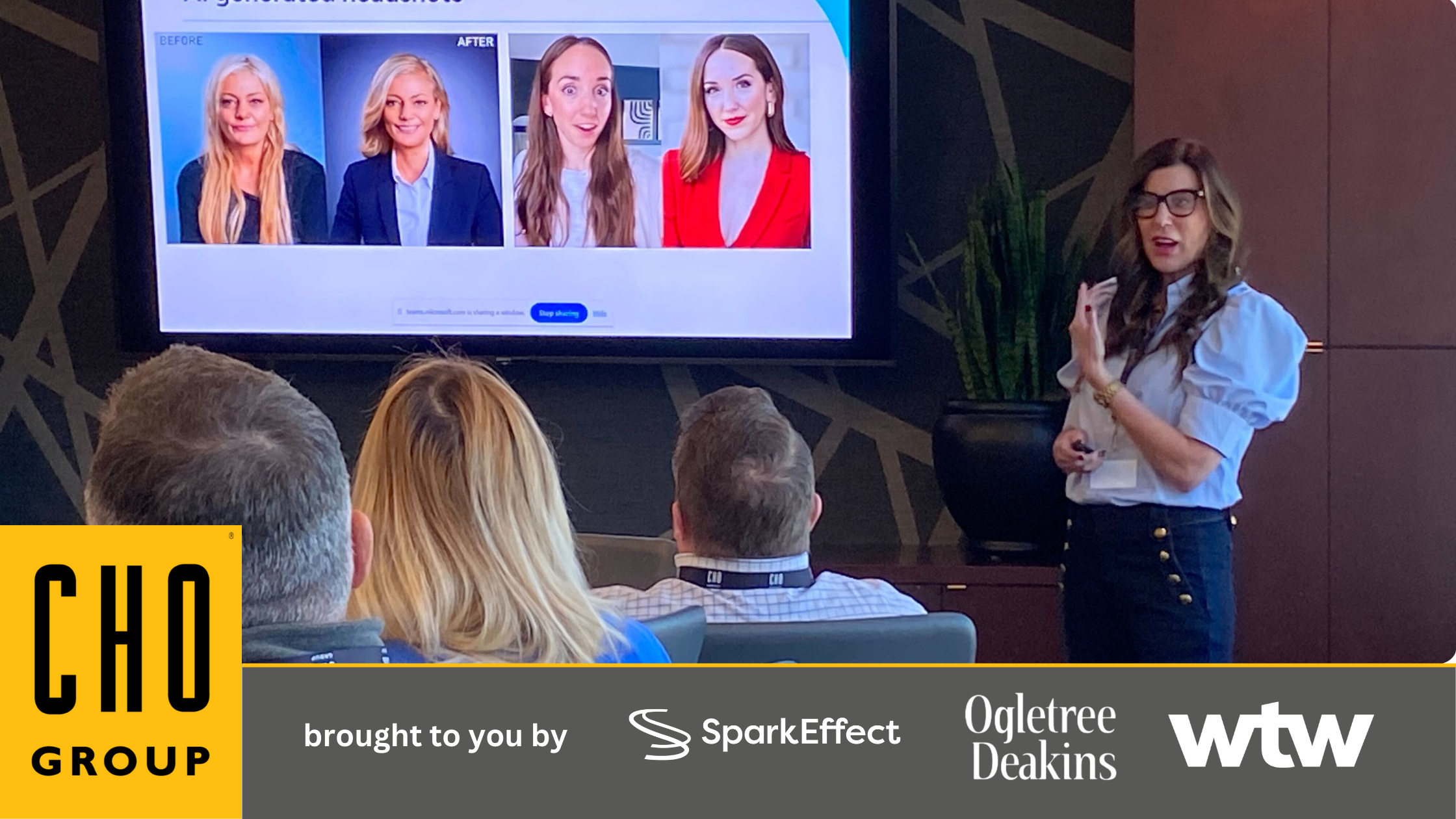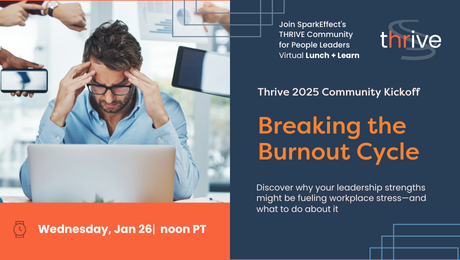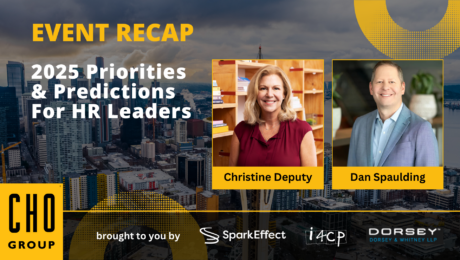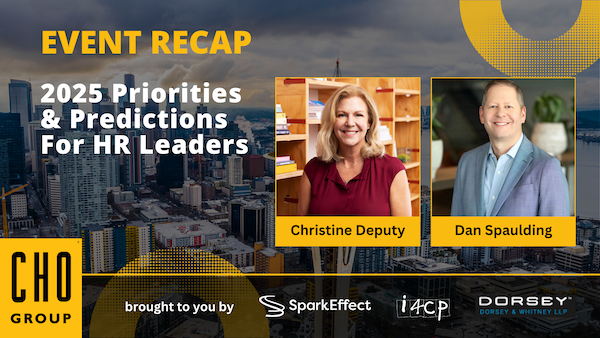The Arizona CHO Group recently hosted its first event in Phoenix, bringing together top HR leaders to explore cutting-edge ideas in human resources. The inaugural session focused on a timely and critical topic: the impact of artificial intelligence on HR practices and the workplace.
Kat Drum, VP of Agency and Consultant Partnerships at Paradox (pictured above), kicked off the event with an insightful presentation on the current state and future potential of AI in HR. As an early employee at one of the fastest-growing technology companies in the Phoenix area, Drum offered a unique perspective on AI’s rapid evolution and its implications for HR professionals.
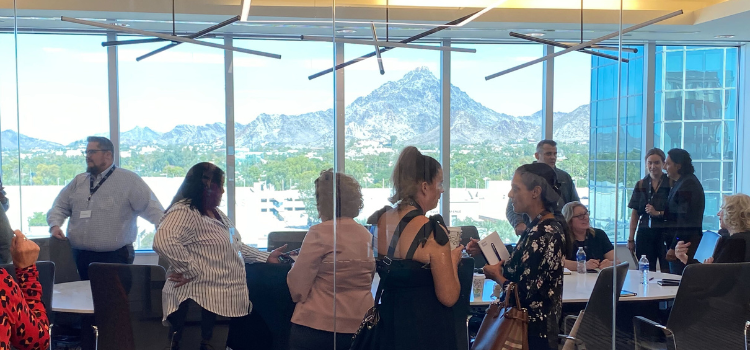
Key Takeaways from Kat Drum's Presentation:
- AI is not new, but its applications are evolving rapidly. Drum highlighted that while AI has been around since the 1940s, recent advancements have brought it to the forefront of HR practices.
- AI is already pervasive in our daily lives, from facial recognition to predictive search algorithms. In the HR context, it’s being used for recruiting, onboarding, performance management, and more.
- Paradox, Drum’s company, has leveraged AI to help clients interview and schedule interviews for over 15 million people, demonstrating the scale and efficiency AI can bring to HR processes.
- AI is being used across various HR functions, with the highest adoption (64%) in talent acquisition and recruiting.
- While AI offers numerous benefits, including 24/7 availability and improved workforce analytics, it’s crucial to maintain human oversight and ethical considerations.
- Drum emphasized that AI should enhance human capabilities rather than replace jobs. For example, by automating routine tasks, AI can free up HR professionals to focus on more strategic, high-value activities.
Legal Implications and Considerations
Danielle Ochs, an employment law attorney and equity shareholder at Ogletree Deakins, provided valuable insights into the legal landscape surrounding AI in HR:
- Regulatory Landscape: Ochs highlighted that various federal agencies, including the EEOC, DOJ, and FTC, are actively developing guidelines for AI use in employment practices.
- State-Level Legislation: Several states, including New York, Illinois, and California, have enacted or are considering laws regulating AI use in employment decisions.
- Potential Risks: Ochs warned about the risks of unintentional discrimination through AI, emphasizing the need for regular audits and human oversight of AI-driven processes.
- Best Practices: She recommended forming an AI governance team, taking inventory of AI tools, implementing proper policies, and ensuring vendor management and human oversight.
The event concluded with a lively discussion among attendees, who shared their experiences and concerns about implementing AI in their organizations. Many expressed a mix of excitement about AI’s potential and apprehension about navigating the complex legal and ethical considerations.
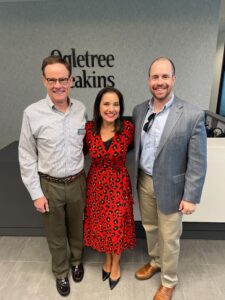 As HR leaders continue to explore and implement AI solutions, events like this inaugural CHO Phoenix session provide crucial opportunities for learning, sharing best practices, and staying ahead of the curve. The key takeaway? AI in HR is here to stay, but its successful implementation will require a thoughtful, strategic approach that balances innovation with ethical considerations and legal compliance.
As HR leaders continue to explore and implement AI solutions, events like this inaugural CHO Phoenix session provide crucial opportunities for learning, sharing best practices, and staying ahead of the curve. The key takeaway? AI in HR is here to stay, but its successful implementation will require a thoughtful, strategic approach that balances innovation with ethical considerations and legal compliance.
The Arizona CHO Group plans to host quarterly events moving forward, providing ongoing opportunities for HR leaders to connect, learn, and share cutting-edge ideas that benefit their organizations and professional interests.
Interested in our upcoming Greater Phoenix CHO events? Contact Kristie Winchester, SparkEffect’s VP of Client Engagement in Arizona (pictured to the left-middle).

